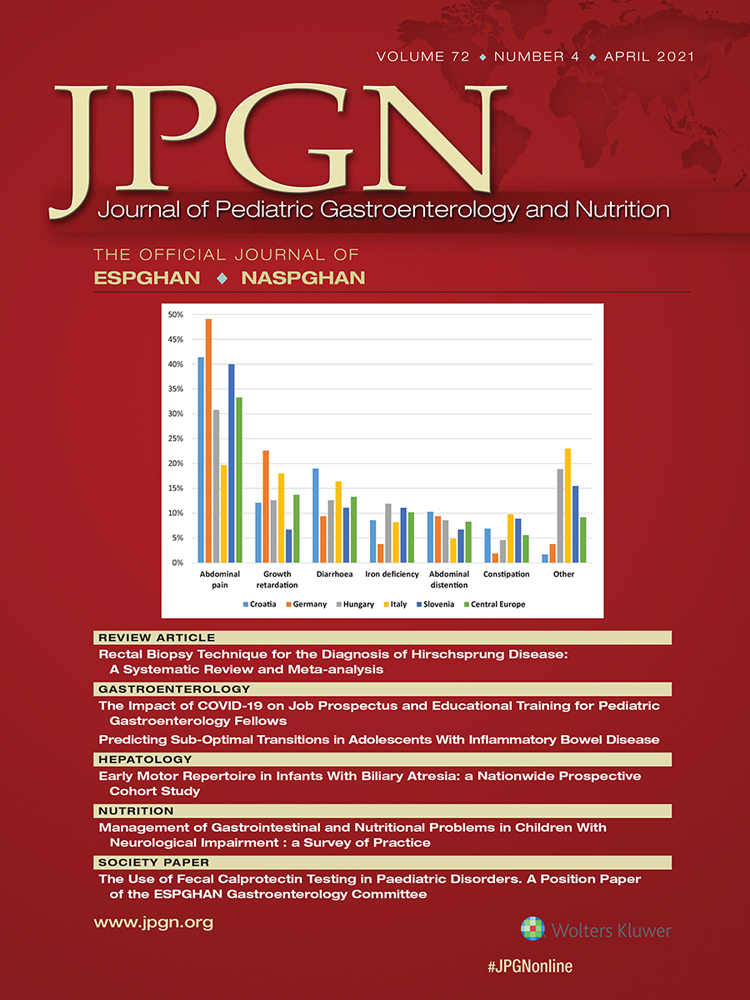Influence of Acid Blockade on the Aerodigestive Tract Microbiome in Children With Cystic Fibrosis
Supplemental digital content is available for this article. Direct URL citations appear in the printed text, and links to the digital files are provided in the HTML text of this article on the journal's Web site (www.jpgn.org).
This work was supported by a Cystic Fibrosis Foundational Grant Award (#Khalaf17B0, 2017–2019), a Cystic Fibrosis Foundation Clinical Research Award, (FILLON15A0, 2015--2020), a National Institutes of Health Training Grant (5T32-DK067009-12, 2008–2020), and a NIH/NCATS Colorado CTSA Grant Number (UL1 TR002535, 2015--2020). Contents are the authors’ sole responsibility and do not necessarily represent official NIH views.
Conflict of interest statement: G.F. is the Chief Medical Officer-EnteroTrack, the company that produces the esophageal string test. The other authors have no other conflicts of interest to report.
ABSTRACT
Background:
Acid blockade is commonly prescribed in patients with cystic fibrosis (CF). Growing concerns, however, exist about its possible role in the pathophysiology of pulmonary infections. We aimed to investigate if acid blockade alters esophageal and respiratory microbiota leading to dysbiosis and inflammation.
Methods:
We performed a cross sectional study of children with CF who were either prescribed acid blockade or not. Samples from the gastrointestinal and respiratory tracts were obtained and microbiome analyzed. Mixed effect models were used to compare outcomes between cohorts and across sampling sites. A random subject intercept was included to account for the multiple sampling sites per individual.
Results:
A cohort of 25 individuals, 44% girls with median age of 13.8 years [IQR 11.2--14.8] were enrolled. Alpha diversity, total bacterial load, and beta diversity were similar across anatomic compartments, across the upper gastrointestinal tract, and in respiratory samples. Similar alpha diversity, total bacterial load, and beta diversity results were also observed when comparing individuals on versus those off acid blockade. IL-8 was elevated in the distal versus proximal esophagus in the whole cohort (P < 0.01). IL-8 concentrations were similar in the distal esophagus in patients on and off acid blockade, but significantly greater in the proximal esophagus of subjects on treatment (P < 0.01).
Conclusions:
On the basis of these data, acid blockade use does not appear to influence the microbiome of the aerodigestive tract in children with cystic fibrosis suggesting a complex interplay between these medications and the bacterial composition of the esophagus and lung.




